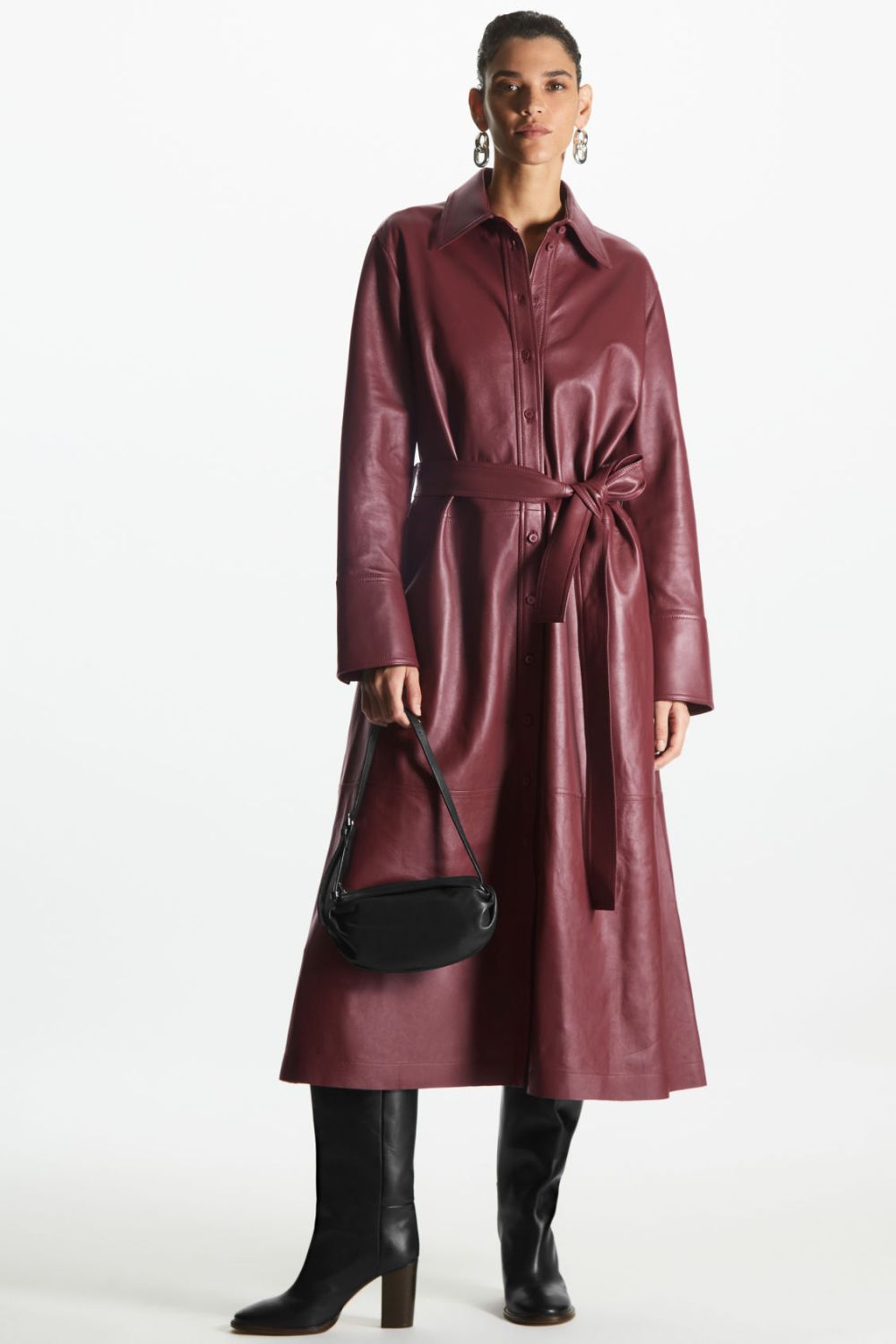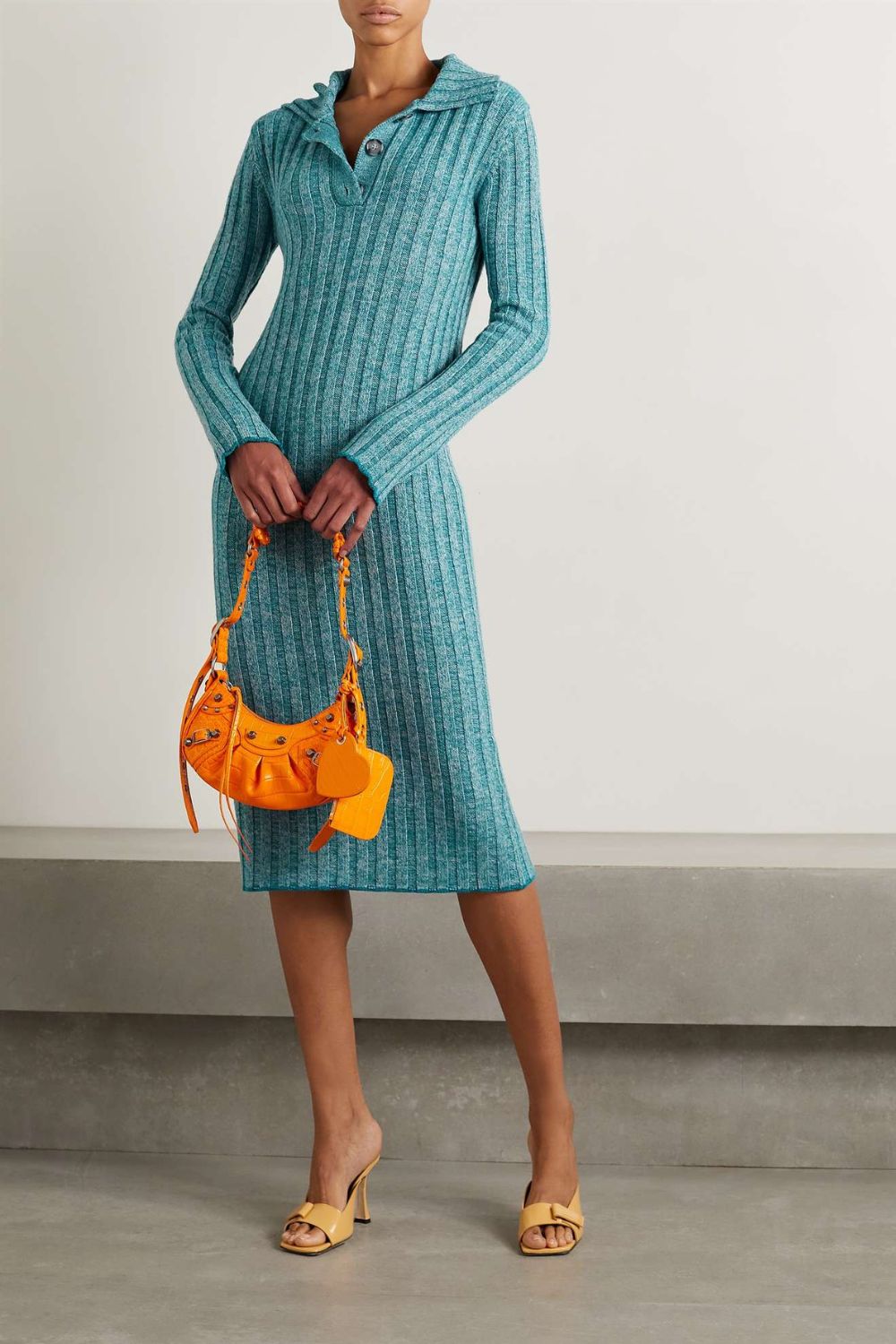For Angela Ruttledge, letting her hair go grey felt like the easier option, no matter what people thought or said about how it aged her. Here, she speaks about embracing her natural hair, the effects of body shaming and idle observations, and how the opinions of others can shape our own body image …
‘You look like Christine Lagarde.’
I was stopped at the traffic lights on the way back to work after a sneaky trip to the hairdressers and a guy called out of his car window to me.
‘Oh thank you very much!’ I exclaimed, not one to turn my nose up at a compliment, and drove off grinning.
Then it dawned: she is not the famous French actress I was thinking of but the president of the European Central Bank. On Googling I discovered she is 23 years my senior.
I think he meant well?
I stopped dyeing my hair under cover of the granny grey fad. I am ‘lucky’ to be very grey. At the time I was on trend. Now, although it’s pretty common, people still remark on it. Women generally, but the sheer hoary-ness of it also makes even the most formal of men comfortable with mentioning my hair’s appearance. In a world of political correctness gone mad, I welcome this.
To stop dyeing your hair is a big thing. Not as bad as losing your teeth maybe, but up there. Of course I care that it makes me look older, but since people’s comments are mostly kind, I assume that even if they don’t actually think it’s super, at least they admire the honesty. Because that’s what it feels like: speaking truth to my own blackmailing body. There came a point at which not dyeing my hair, ‘fessing up, became the easier option, no matter what people thought or said about how it aged me.
The evening yer man did a Largarde on me, we went to a gig; Paul Heaton and Jacqui Abbott, ex of Beautiful South, sang ‘Perfect 10’: time takes its toll, but not on the eyes. The air was warm and we were liquid with joy just being together, being comfortable in our own skin. The song was released way back in 1998, we marvelled at his prescience.
The problem is not just other people’s actual or perceived opinions, but the internal chatter they set off.
The other day, my six year old squeezed her cheeks at the mirror and said, ‘I’m chubby’, and as my blood boiled I discovered it was almost impossible to provide reassurance without making further comments about her appearance. I told her all the things my friends and I agreed we’d tell our daughters to ward off the evil – pass remarkable – eye, that she was strong and powerful. That she has magic in her.
When I was her age, I imagined that the whole world was a stage and the people in it actors, hired by my parents, who were my actual parents but were also acting. A bit like The Truman Show. The whole affair designed to teach me about life. It was a test. Maybe this is a common fantasy as we move from egocentric children to self-aware tweens.
As I got older I came to the related conclusion that we are defined by what people think of us. What are we but a series of impressions on others? My grandmother once said, ‘your legs aren’t as thin as the rest of you’. And I thought, she’s right! Most of my secondary schooling was spent calorie doodling, figuring out how to sit so that my ‘enormous’ thighs looked smaller. Answer: on the edge of my seat. Did you know there are 1,900 calories in a 400g pack of digestives? This means if you don’t eat anything all day you can eat the entire packet of biscuits and come out even-stevens.
I wonder how much energy our susceptibility to other people’s perceptions of us lends to the worms that cause self-harm, eating disorders, addiction or plain old misery? How do we fortify ourselves, our children, before those brain worms burrow in? Because we can call out body shaming all we like, but people will make idle observations, we always have. The world is in fact a stage and often we have nothing better to do than watch.
Billie Eilish asks:
Is my value based only on your perception?
Or is your opinion of me
Not my responsibility?
Would her lyrics have made any difference to teenage me? Will they reason with my daughter?
The problem is not just other people’s actual or perceived opinions, but the internal chatter they set off. In More Than a Woman, Caitlin Moran shares her struggle around her daughter’s eating disorder and talks about waiting, helpless, for ‘the moment where they lose faith in the malign voice in their head.’ We have created a world, a drama, a culture that is all about appearance, where our sense of ourselves is largely based on other people’s perceptions, and therefore, when it comes to faith in or acceptance of ourselves, we’re on rocky ground.
LOVETHEGLOSS.IE?
Sign up to our MAILING LIST now for a roundup of the latest fashion, beauty, interiors and entertaining news from THE GLOSS MAGAZINE’s daily dispatches.
Ac turpis egestas integer eget aliquet nibh praesent tristique. Elit ullamcorper dignissim cras tincidunt lobortis feugiat vivamus. Scelerisque purus semper eget duis at tellus at urna condimentum. Volutpat lacus laoreet non curabitur gravida arcu ac tortor dignissim. Pretium nibh ipsum consequat nisl vel. Ac turpis egestas integer eget. Ac odio tempor orci dapibus ultrices. Odio pellentesque diam volutpat commodo. Nam at lectus urna duis convallis convallis tellus id. Dui nunc mattis enim ut. Eget sit amet tellus cras adipiscing enim eu. Amet luctus venenatis lectus magna fringilla urna porttitor rhoncus dolor. Elementum facilisis leo vel fringilla est ullamcorper eget. Lobortis mattis aliquam faucibus purus in. Pharetra magna ac placerat vestibulum lectus mauris ultrices eros in. Fermentum et sollicitudin ac orci.

Slit hem camisole dress, €99.95, at Massimo Dutti.

Belted leather midi-dress, €450, at COS.

Ribbed wool-blend midi-dress, Acne, €450; www.net-a-porter.com.






